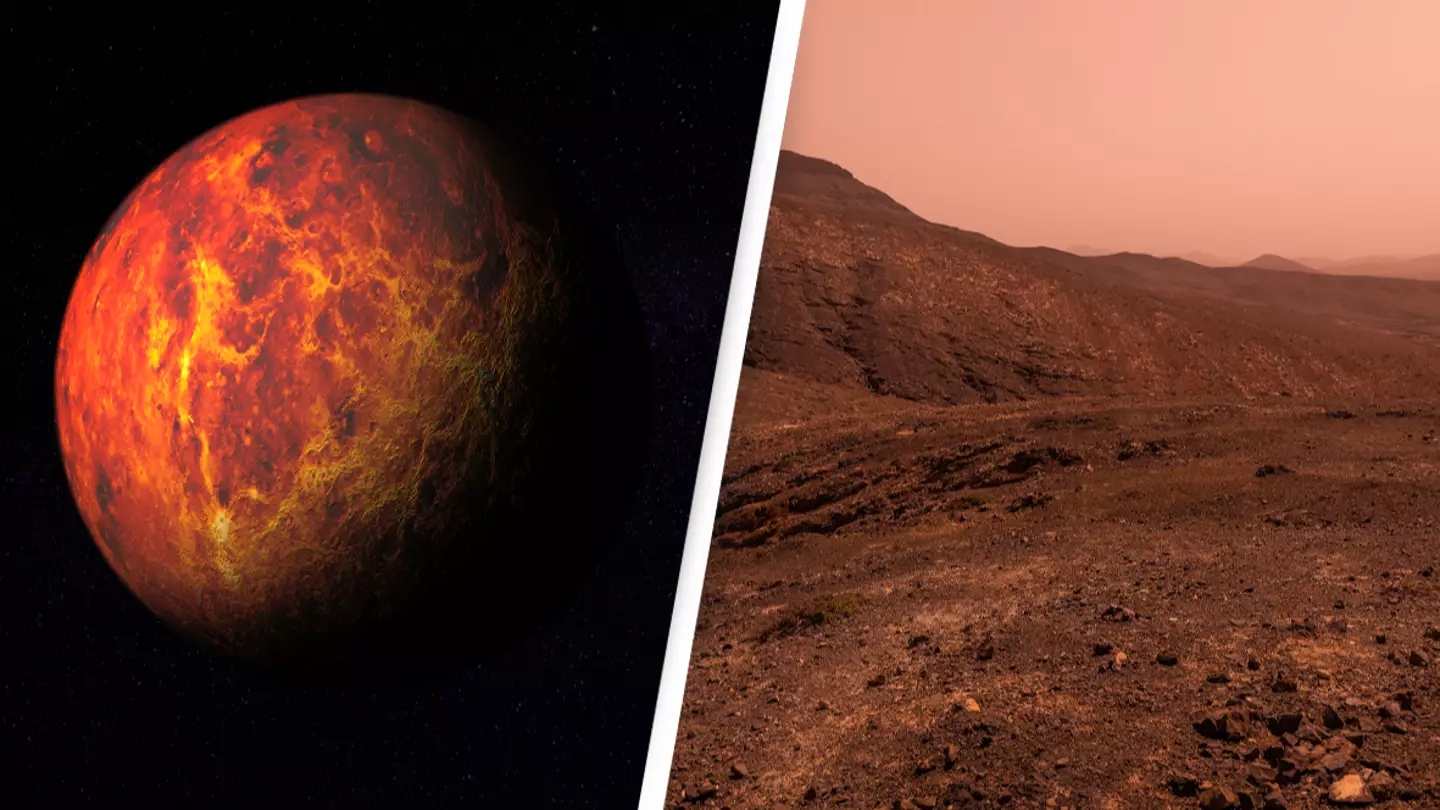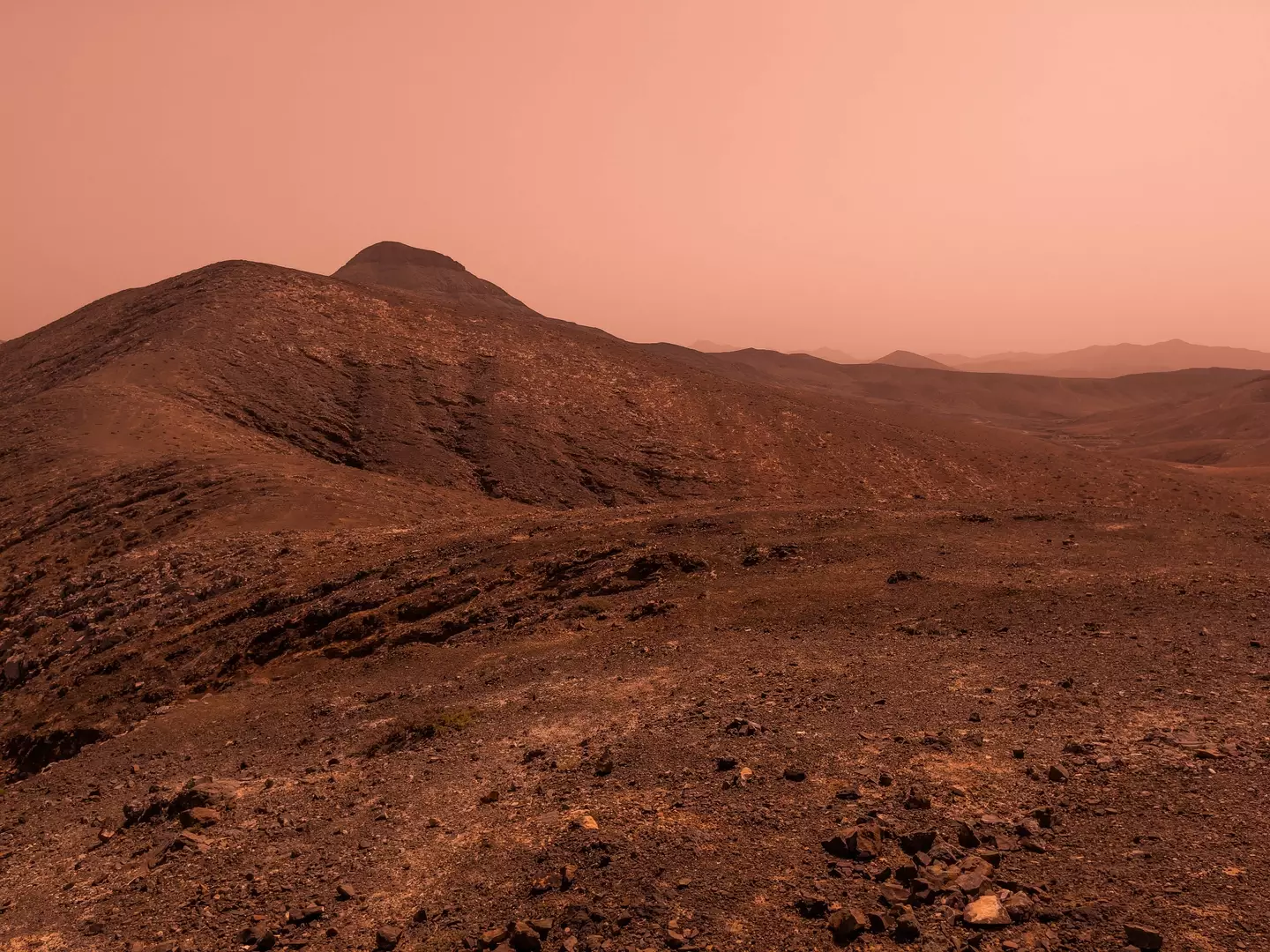
Mars is spinning faster and scientists are not sure about the reason why.
Scientists have discovered that the Red Planet is accelerating at around four milliarcseconds per year, which means Martian days are now a fraction of a millisecond shorter.
The measurements suggest the changes are subtle, however, experts are currently unable to explain the exact reason behind it.
Advert
One of the potential causes could be ice accumulating on Mars’ polar caps or post-glacial rebound, which describes when land masses rise after being buried beneath ice.
Shifts in a planet’s mass can cause it to accelerate, NASA says, which is kind of similar to when an ice skater spins with their arms stretched out before retracting them.
The shift in spin speed was detected by using data from NASA’s InSight Mars lander. The spacecraft was designed to study Mars over a four year period, before it ran out of power in December last year.
.jpg)
Sebastien Le Maistre, lead author of a paper documenting the findings in the Nature journal, said the variations in speed on Mars were ‘just a few tens of centimetres over the course of a Martian year’.
He added: “It takes a very long time and a lot of data to accumulate before we can even see these variations.”
Scientists have been able to make the most precise measurements of Mars’ rotation ever, including that the planet wobbles because of the ‘sloshing’ of its molten core.
The findings, which were detailed in a recent Nature paper, used data from the first 900 Martian days from NASA’s InSight Mars lander.
Le Mistre called the study ‘a historic experiment’. He teased that the study is just the tip of the iceberg and there are a lot more discoveries to be made.
He added: “We have spent a lot of time and energy preparing for the experiment and anticipating these discoveries. But despite this, we were still surprised along the way – and it’s not over, since RISE still has a lot to reveal about Mars.”

For many years there has been talk of humans one day moving to Mars permanently, with the likes of Elon Musk aiming to get mankind on the Red Planet before anyone else.
However, according to one of the most recent studies into the viability of human life on Mars, it might not be as easy as you may think.
Research carried out by a team at UCLA looked to answer two key questions - the first being around the impact of particle radiation and whether it would pose too grave a threat to human life.
The second was whether the timing of a mission to Mars could protect astronauts and the spacecraft from radiation?
The scientists used geophysical models of particle radiation for a solar cycle and models of how radiation could affect both human passengers and a spacecraft, to answer both questions.
The answers to their two questions were 'no' and 'yes', respectively.
Topics: News, Space, Technology, NASA
